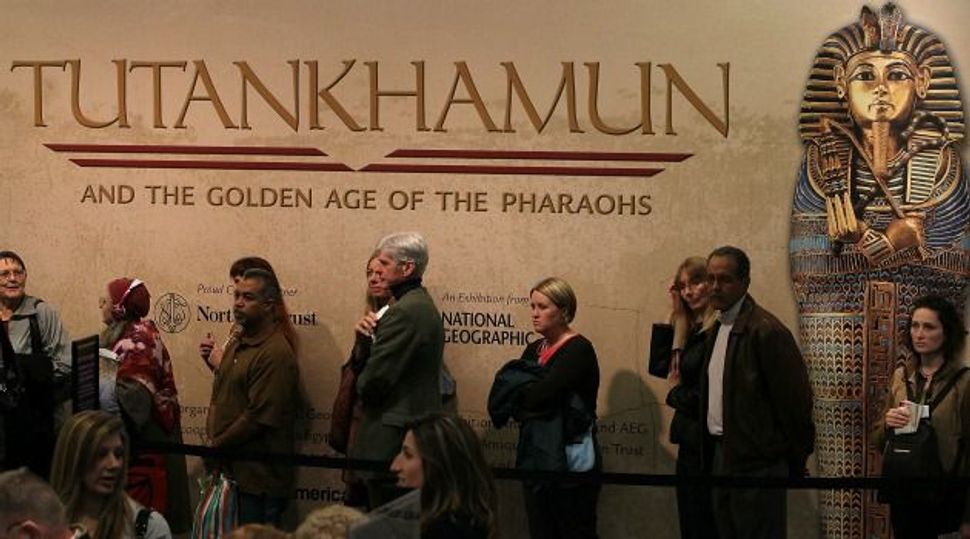3,600-Year-Old Pharoah’s Skeleton Found in Egypt

New Tut? A research team has uncovered the skeleton of a previously unknown pharoah named King Senebkay. Image by getty images
Archaeologists in Egypt believe they have discovered the remains of a previously unknown pharaoh who reigned more than 3,600 years ago.
The skeleton of King Senebkay were uncovered at South Abydos in Sohag province, about 500 km (300 miles) south of Cairo, by a University of Pennsylvania expedition working with the government, the Egyptian antiquities ministry said.
Never before heard of in ancient Egyptian history, King Senebkay’s name was found inscribed in hieroglyphics written inside a royal cartouche – an oval with a horizontal line at one end signalling a royal name, the ministry said in a statement.
Photographs released with the statement showed what appeared to be a heavily damaged sarcophagus in a burial chamber with no roof. Its stone walls were decorated with painted images.
The photos also showed the pharaoh’s skeleton laid out on a white sheet. “He was originally mummified but his body was pulled apart by ancient tomb robbers,” said the caption.
“No funerary furniture was found in the tomb, confirming it had been robbed in the ancient pharaonic ages,” the statement said, quoting Ali al-Asfar, an antiquities ministry official.
In the statement written in Arabic, Joseph Wegner, head of the expedition, added: “The modesty of the size of the tomb points to the decline of economic conditions in this period”.
The statement dates King Senebkay’s rule to 1650 BC during a time known as the second intermediate period when central authority collapsed and small kingdoms sprung up between the end of the Middle Kingdom and the start of the New Kingdom.

I hope you appreciated this article. Before you go, I’d like to ask you to please support the Forward’s award-winning journalism this Passover.
In this age of misinformation, our work is needed like never before. We report on the news that matters most to American Jews, driven by truth, not ideology.
At a time when newsrooms are closing or cutting back, the Forward has removed its paywall. That means for the first time in our 126-year history, Forward journalism is free to everyone, everywhere. With an ongoing war, rising antisemitism, and a flood of disinformation that may affect the upcoming election, we believe that free and open access to Jewish journalism is imperative.
Readers like you make it all possible. Right now, we’re in the middle of our Passover Pledge Drive and we need 500 people to step up and make a gift to sustain our trustworthy, independent journalism.
Make a gift of any size and become a Forward member today. You’ll support our mission to tell the American Jewish story fully and fairly.
— Rachel Fishman Feddersen, Publisher and CEO
Join our mission to tell the Jewish story fully and fairly.
Our Goal: 500 gifts during our Passover Pledge Drive!
























